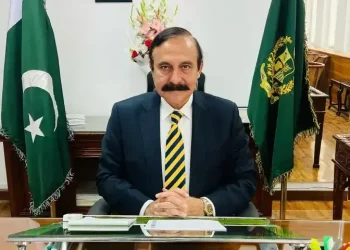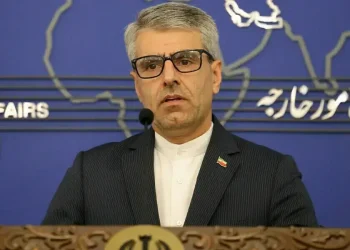Gantz is branded a centrist and possible replacement for Netanyahu, but experts say there are similarities between them.
In his 2019 campaign for the Israeli parliament, Benny Gantz – the man many see as a likely successor to Prime Minister Benjamin Netanyahu – put out a video to show Israelis where he stood on crucial policy issues.
Black-and-white images of destruction in Gaza from a campaign he oversaw while he was army chief of staff ran along with claims of sending the Palestinian enclave “back to the Stone Age”.
“This was his entrance into Israeli politics,” Eyal Lurie-Paredes, a non-resident fellow at the Middle East Institute, told media.
“That’s just to give you an idea of how he thinks about human rights and Palestinians.”
The popularity of Netanyahu, Israel’s longest-serving leader, is tanking while Gantz, who has been branded a centrist, is seen by many Israelis as a figure of reason.
Netanyahu is in trouble.
The prime minister is on trial for corruption, thousands are protesting against his far-right government’s rule, and he is blamed for failing to stop the Hamas-led attack on Israel on October 7.
On the flip side, thousands of far-right Israelis – including some from Netanyahu’s government – do not think he has gone far enough in Gaza and are equally unhappy.
After October 7, Gantz moved out of the opposition and joined a national unity government, then joined a three-man war cabinet to lead Israel’s assault on Gaza, with Netanyahu and Defence Minister Yoav Gallant.
A retired army general, Gantz added experience to the cabinet and was a counterweight to far-right National Security Minister Itamar Ben-Gvir and Finance Minister Bezalel Smotrich.
While not part of the war cabinet, Ben-Gvir and Smotrich are vital members of Netanyahu’s coalition government and have hardline views on Gaza, opposing any deal that would end a war in which Israel has now killed more than 35,000 Palestinians.
Heir apparent?
But while Gantz might not hold some of those maximalist positions, the description of him as a “centrist” needs to be understood within the Israeli context, which has shifted firmly to the right – if not the far-right – this century.
“Gantz is a centrist figure in a political [scene] that went so right wing it is even hard to recognise it any more,” Laurie-Paredes said.
“It is important to emphasise that on many issues … Gantz and Netanyahu do not differ that much from each other,” Lurie-Paredes said.
Like Netanyahu, Gantz’s track record in government – leading two wars on Gaza and designating Palestinian human rights organisations as “terrorist” groups – shows that he is unlikely to improve the situation for Palestinians living under Israeli occupation or change the violent reality of the Israeli-occupied West Bank. Analysts also say there is little divergence between Netanyahu and Gantz’s Gaza strategies.
If Gantz had been in charge of the response to October 7, the expectation that he would have acted any differently than Netanyahu “would be a false estimate”, Laurie-Paredes said. “Especially in the first two months of the war.”
Gantz was born in 1959 in Kfar Ahim, a moshav or agricultural settlement established by Holocaust survivors on the ruins of the Palestinian village of Qastina. His parents were among the early settlers.
He enlisted in the military in 1977, joining the Paratroopers Brigade, launching a long military career that coincided with many of the most tumultuous periods of Israel’s history.
He became commander of the Israeli army’s ground forces a year before Israel launched a devastating war on Lebanon in 2006, in an attempt to destroy Hezbollah in southern Lebanon.
His time in Lebanon, and before that in the West Bank, was not particularly successful from a military and security standpoint. Still, it did not stop his meteoric rise.
“There’s a lot of stories of him being a very lucky person,” Lurie-Paredes said. But “he was never someone that was considered to be a strong leader.”
In 2007, Gantz was appointed military attache at Israel’s embassy to the United States, before returning to Israel in 2009 as the military’s deputy chief of staff.










 American Dollar Exchange Rate
American Dollar Exchange Rate